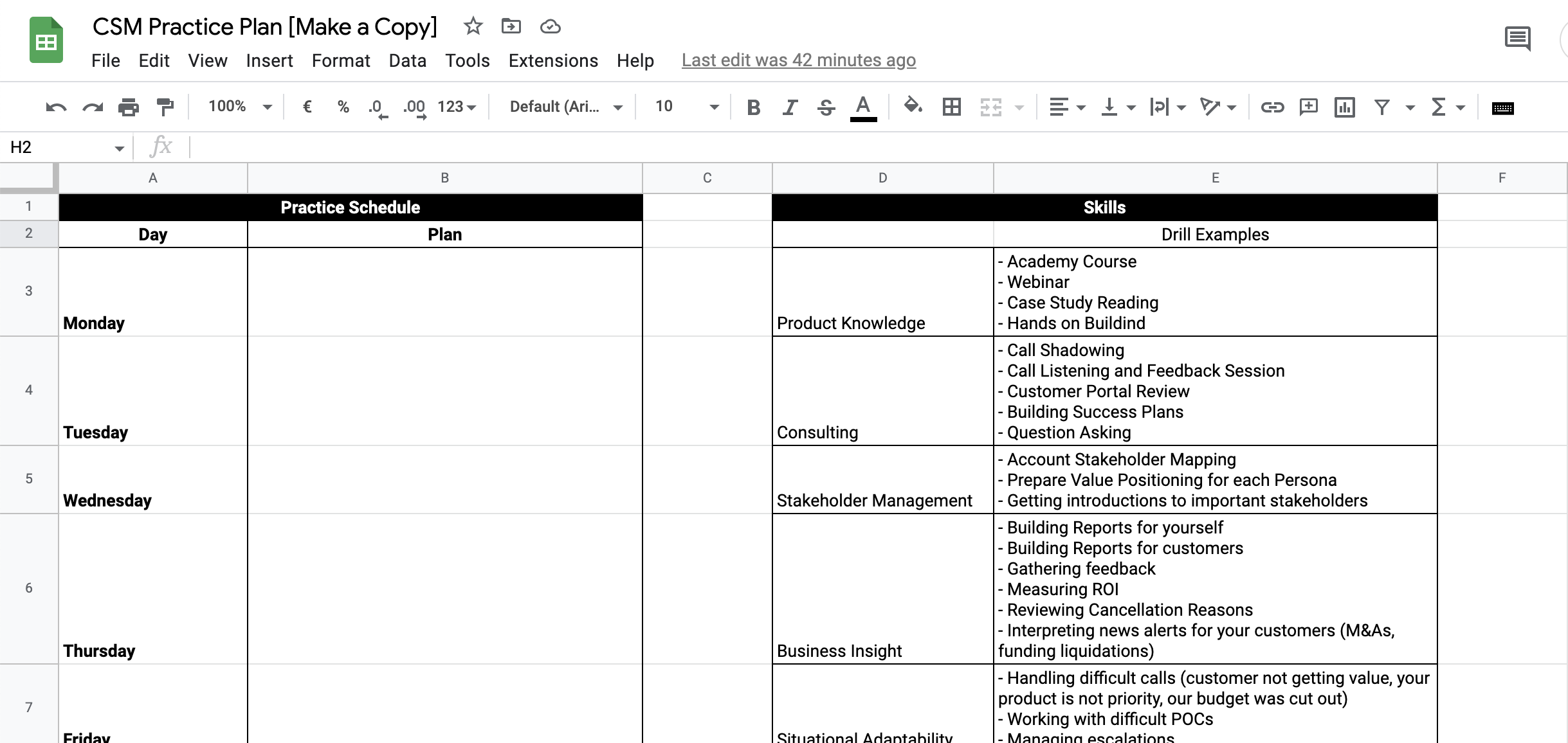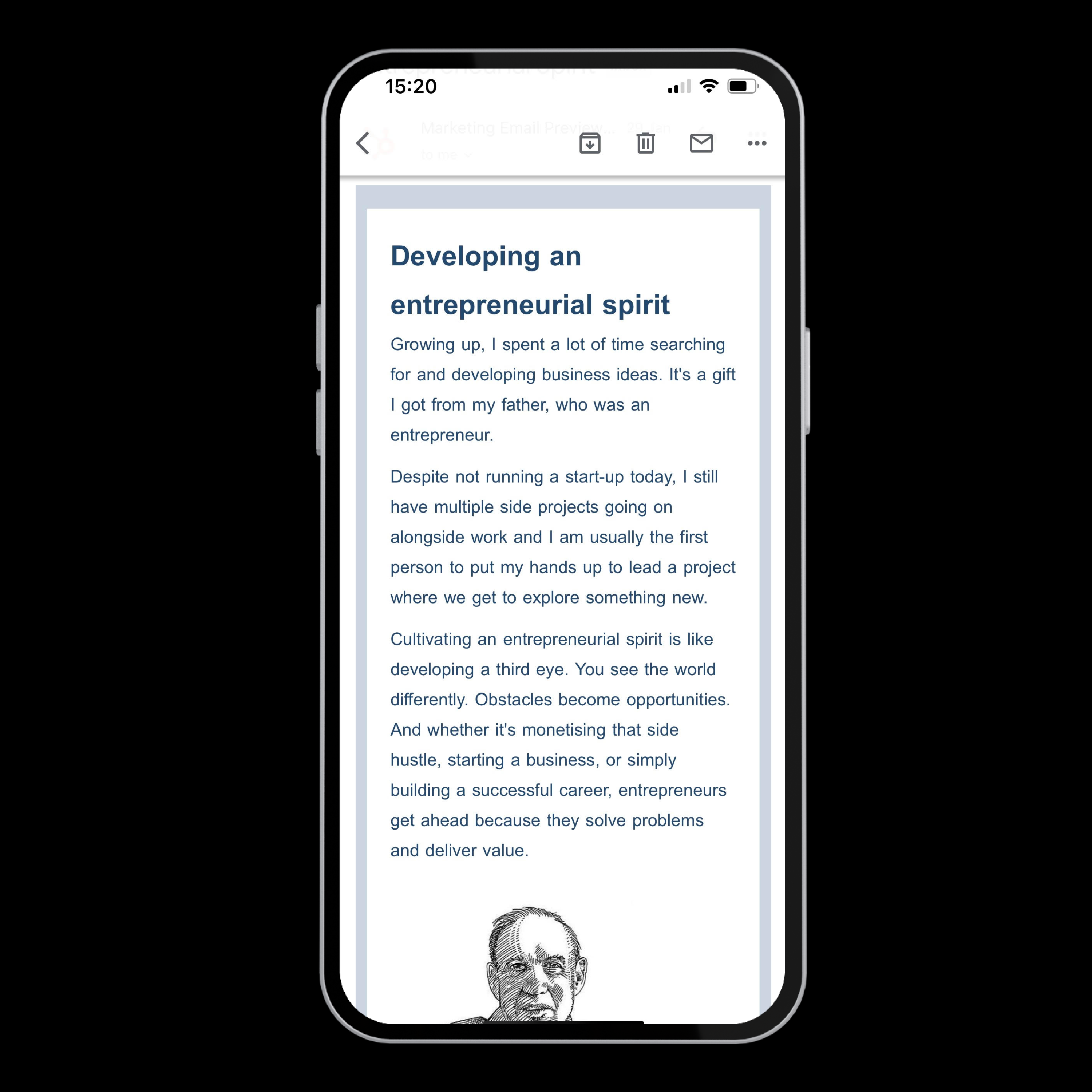
About The Newsletter
Join 8500+ subscribers. Every Friday you’ll get an issue covering a key aspect of building and scaling a modern Customer Success team.
We often hear that ten thousand hours of practice is what’s required in order to master any subject. By that equation, if you work full-time as a CSM, it will take you 3.5 years to master the role.
But the process of becoming great isn’t that simple.
Research shows that there is practice, and there is deliberate practice.
What’s the difference?
Practice is just about doing something, over and over.
Deliberate practice is breaking down the skill you are hoping to master into smaller pieces. Then focusing on mastering each of those fragments through repetition that is guided by immediate and informative feedback.
Practice is going for a run every day.
Deliberate practice is running with a coach that will benchmark your results, observe you when you run, give you feedback on specific areas of improvement, and build exercises that will help you close those gaps daily.
Practice makes amateurs. Deliberate Practice makes Olympic gold winners.
Connect With Me
The CSM Skill Practice Plan

#1 CSM Skills
I have hired over 200 CSMs and interviewed thousands. I have managed CSMs in start-ups, scale-ups and enterprises. I have worked with high-touch models and low-touch models. I believe the skills I listed here are applicable to every CSM.
What are the skills?
Let’s explore each of these skills and why they are important.
Product Knowledge
Whatever type of CSM role you are in (offensive or defensive), knowing your product or service will be critical to driving value to customers. A CSM with low product knowledge will have low credibility with the customer and end up spending a lot of time finding answers and waste a lot of time on follow-up research and emails instead of solving there and then.
Consulting
You often hear that great CSM-ing is about relationship building. This isn’t a lie. However, you don’t build strategic relationships with customers by simply getting to know them personally (that’s how you make friends). Strategic relationships are built on a bedrock of compounding value delivery. And how do CSMs deliver value? Through excellent consulting.
Stakeholder Management
CSMs have multiple points of contact in their customer organisations and within their own company. Managing all these stakeholders and ensuring they engage productively is a key aspect of delivering value and solving for the customer.
Business Insight
A CSM with business insight skills is able to combines data and analysis to make sense of a challenges and opportunities. They give customers and their own companies a competitive edge.
Situational Adaptability
CSMs encounter many different types of situations in their day-to-day ranging from introductory calls, escalations, negotiations and so on and so forth. CSMs also deal with different personalities and levels of frustration from their customers. While it’s good to be prepared, in many cases they will have to adapt on the fly.
Book of Business Management
Whether you manage 30 or 200 accounts, every install base has customer in different lifecycle stages (eg. onboarding, quarterly business reviews, renewals etc). CSMs need to have a deep understanding of the key stages of an account and the skills to prioritise based on these proactive motions, as well as ability to react to reactive ones, is essential for any customer success
Communication
Arguably, communication is important in every role. But as the CSM you are interfacing with customers to represent your organisation and help customers get the most our of your products. You will have to influence stakeholders and clearly demonstrate how your products help move the needle. The better your verbal, written and presentation skills are, the more effective you will be.
Forecasting
A CSM that owns a book of business, will be required to provide updates in relation to their customer’s renewals. This means maintaining a good forecasting practice that provides visibility and accuracy for their company. This also allows CSMs to understand where they stand and get ahead of future risks with enough time to turn possible cancellations around.
#2 Deliberate Practice

Arriving. to your learning slot without a plan is usually where things go wrong.
To avoid misappropriating the time to do emails, use a practice plan, where you pick the skill you will be developing and the exercise you will use.
I created a plan that includes the key skills a CSM must master, with examples of drills that can help you develop the skill. This is a template based on basketball practice sheets.

With one hour of practice allotment, I suggest you break it into 3 blocks: 20 minutes Learning (content), 30 minutes Hands-on implementing with an existing customer case, 10 minutes feedback from your coach, manager or manager.
Don’t forget to set your current benchmarks (your expertise level today) and define a goal (where you want to get to).
Guide Summary
Having a practice plan will help you develop a deliberate practice of the skills you need to be a great CSM.
Start by copying this template and planning one week ahead so you arrive to your learning slots of the week with clarity of what skill you are learning and what exercise you will complete.
That’s all for my guide on building a deliberate CSM Skill Development Practice.



